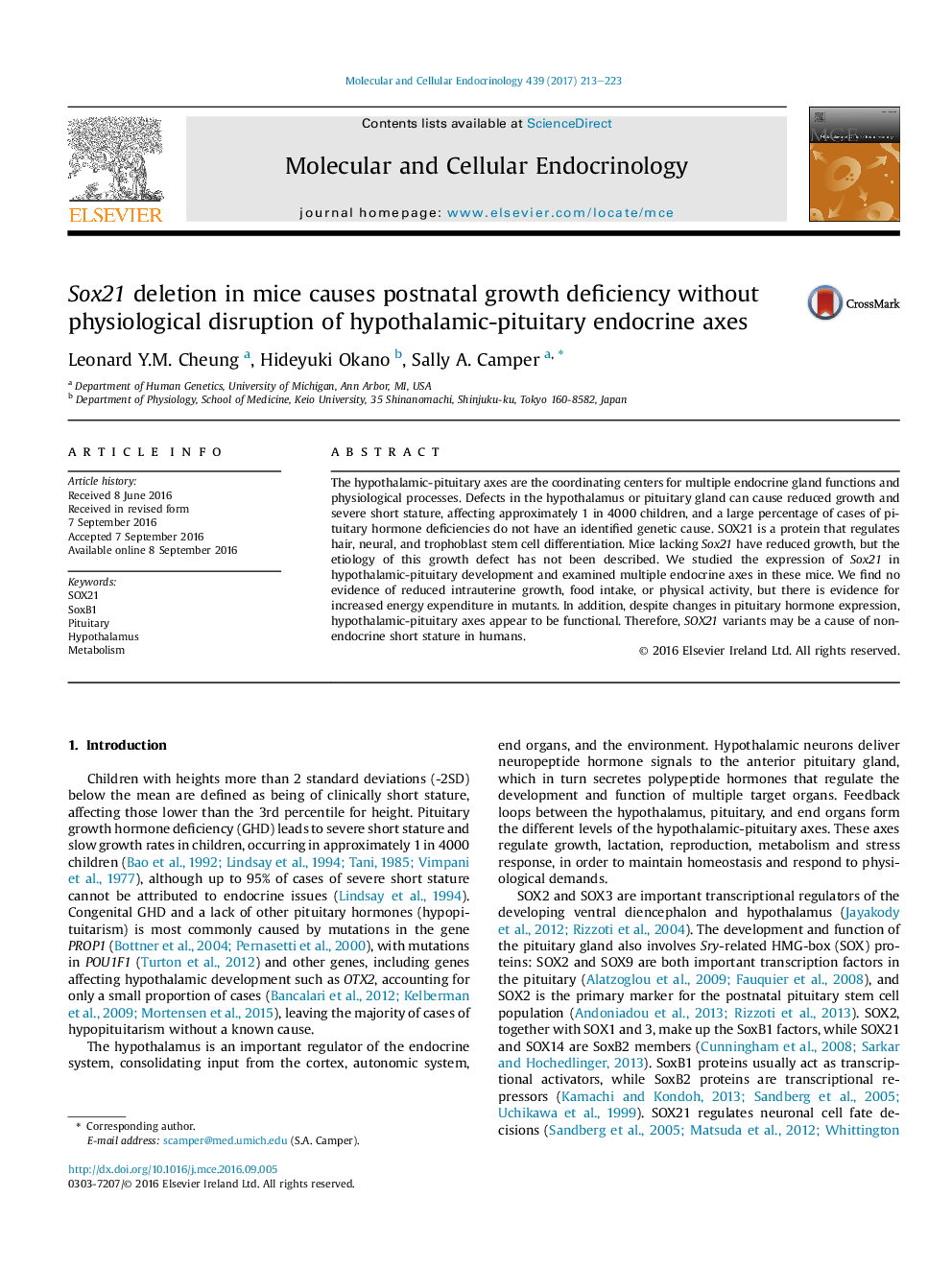| Article ID | Journal | Published Year | Pages | File Type |
|---|---|---|---|---|
| 5534313 | Molecular and Cellular Endocrinology | 2017 | 11 Pages |
â¢This is the first study to explore the reduced growth in Sox21-null mice.â¢SOX21 is expressed in the hypothalamus.â¢Loss of Sox21 causes postnatal growth reduction independent of hypothalamic-pituitary axes.â¢Sox21â/â mice have increased energy expenditure but normal physical activity and food intake.
The hypothalamic-pituitary axes are the coordinating centers for multiple endocrine gland functions and physiological processes. Defects in the hypothalamus or pituitary gland can cause reduced growth and severe short stature, affecting approximately 1 in 4000 children, and a large percentage of cases of pituitary hormone deficiencies do not have an identified genetic cause. SOX21 is a protein that regulates hair, neural, and trophoblast stem cell differentiation. Mice lacking Sox21 have reduced growth, but the etiology of this growth defect has not been described. We studied the expression of Sox21 in hypothalamic-pituitary development and examined multiple endocrine axes in these mice. We find no evidence of reduced intrauterine growth, food intake, or physical activity, but there is evidence for increased energy expenditure in mutants. In addition, despite changes in pituitary hormone expression, hypothalamic-pituitary axes appear to be functional. Therefore, SOX21 variants may be a cause of non-endocrine short stature in humans.
